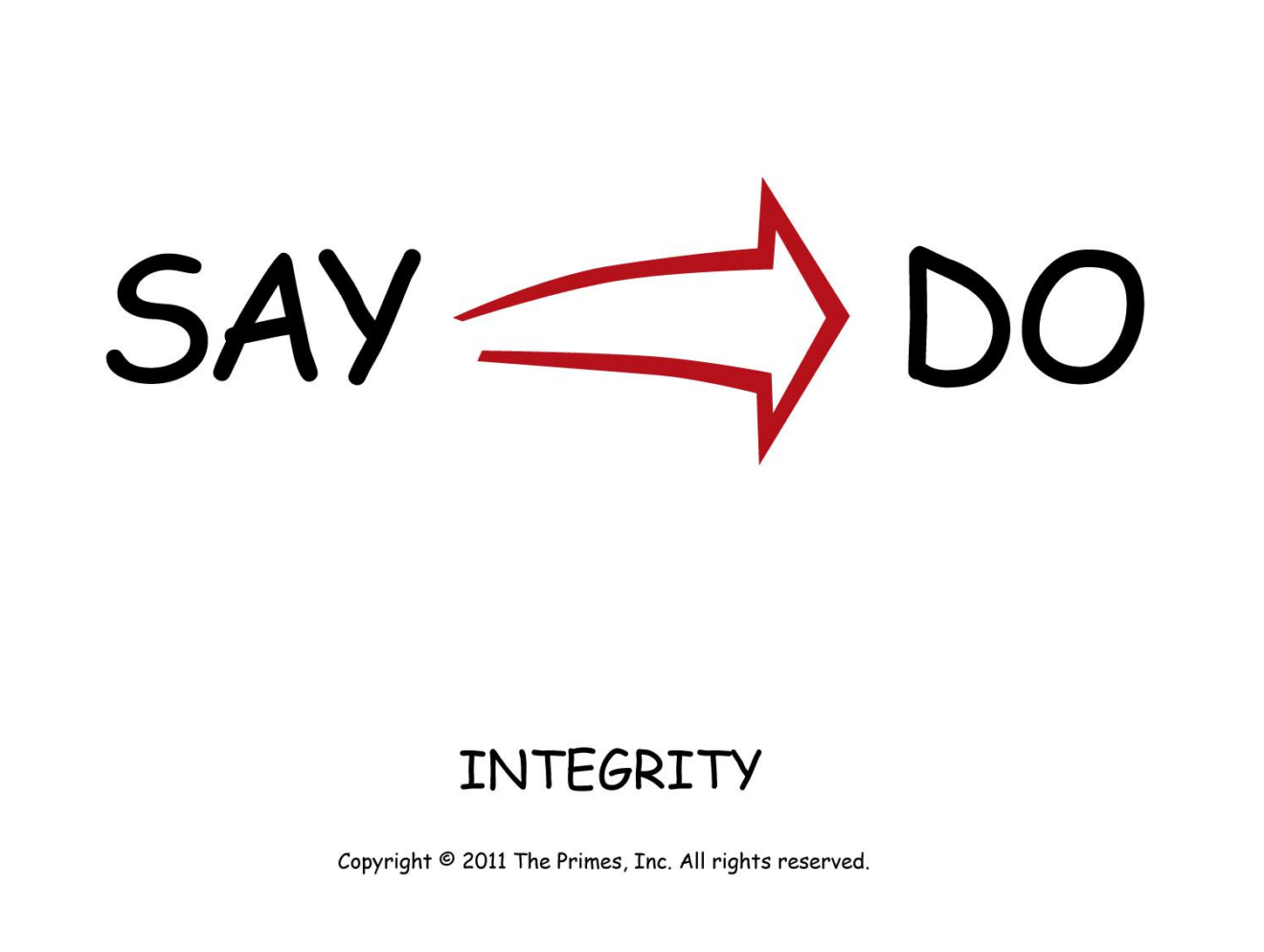Your integrity is constantly being assessed by your peers, your subordinates, your boss, or your board. Integrity is the foundation of a peak performance leader.
When you hear the word “integrity,” what comes to mind? Most people think integrity is a moral issue. Integrity is not a moral matter. It is not about right and wrong. “Having integrity” is about honoring your word as your life. When a person of integrity gives their word or makes a commitment, they follow through, with no exceptions. When integrity is present, it is one of the most powerful characteristics in any person or organization; however, when absent, one of the most damaging.
Each spring, I speak to a graduating high school class in the Washington, D.C. area. As part of this address, I like to pose this exact question. I ask them to stand in a circle, look at the other members of the circle, and assess each person’s integrity. The room goes silent and, more often than not, tears start to flow as students realize how often they have failed to “be their word”’ and the impact their actions have had on their relationships.
Next I ask for volunteers to share how they think others view them with respect to their integrity. Without exception, those who share are hard on themselves citing specific examples of when they failed to ‘be their word’ or caused a breach of integrity. I always have a deep sense of privilege to be part of these experiences. I go on to explain why integrity is so important to their futures – all we really have in life is our word. And honoring our word, or not, powerfully shapes our reputation and so much more.
Living in integrity and being your word is essential for occurring as trustworthy to others. People are willing to trust those who occur as trustworthy. When we trust people, we are willing to speak honestly with them, which promotes interconnectedness, intimacy, and synchronicity. This leads to a feeling of oneness and unity. People do not trust others who are not true to their word, resulting in guarded communications and relationships.
As I close my address, I like to shift the focus to the future and my hope for their future. We all agree that we cannot redo high school (and, believe me, none of them want to) to repair our breaches of integrity. But we can choose to honor our word as out life as we enter into our next phase, either in college or work environments. I encourage these students to know that as they progress professionally they will be afforded many opportunities to lead.
So, why does this matter to you and your organization? Because your integrity is constantly being assessed by your peers, your subordinates, your boss, or your board. Giving your word and following through on the big things and the small things are equally important. Integrity is the foundation of a peak performance leader.
Start now. Write down the seven to 12 people most critical to the future of your business. Consider customers, suppliers, and internal staff when making the list. Now imagine they are all circled around you accessing your integrity. What would they say? Don’t be discouraged if the results are less than perfect. But do not be satisfied until they are. Here is a simple recipe to follow:
- Choose to be a person of integrity in all matters.
- Inventory every existing commitment you have made and fulfill them all.
- Distinguish clearly when you are about to ‘give your word’ to do something or be somewhere. Remember there are no big or small commitments.
- Ask yourself ‘can I really do this and do I want to?’ Ask yourself ‘If I say yes to this will it put any of my existing commitments in jeopardy?’ Remember in this context you are being asked to put your life on the line.
- Say “no” or renegotiate if there is uncertainty. Only say “yes” when you mean it. If you say” yes,” do it.
By being true to your word, you create the possibility of being a peak performance leader. Take time to imagine what would happen if everyone around you at work chose to live in integrity with each other. Gone are the endless status meetings. Project management becomes much simpler. “Fudge factors” disappear. Deadlines are met. Your organization becomes sound, unimpaired, complete and undivided. You become a peak performance culture.
Chris McGoff is the founder of The Clearing, Inc., where he guides organizations to tackle their most complex and high-stake problems. Using his book, “The PRIMES: How Any Group Can Solve Any Problem” (Wiley; 2012), McGoff gives leaders clarity to see the resources they already have available.
If you enjoyed this article, join SmartBrief’s e-mail list for our daily newsletter on being a better, smarter leader.
